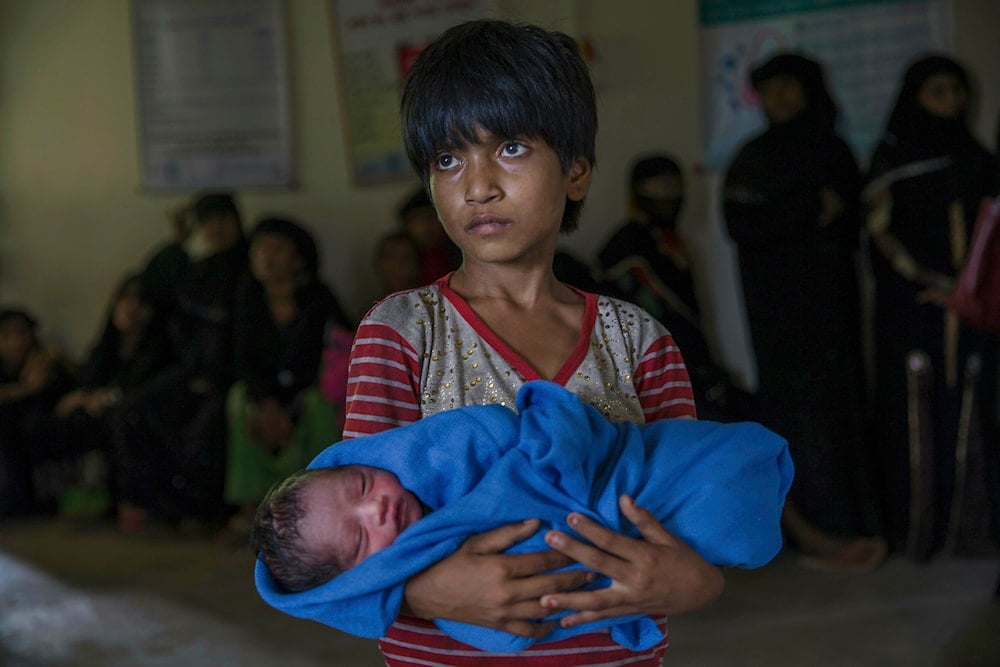Bangladesh calls for support on Rohingya crisis in Myanmar
Bangladesh’s interim leader, Mohammad Yunus, urged global action to end the ethnic cleansing of Rohingya in Myanmar, warning that his country cannot shoulder the refugee crisis alone.
-

File photo, Rohingya Muslim girl Afeefa Bebi, who crossed over from Myanmar into Bangladesh holds her few-hours-old brother as doctors check her mother Yasmeen Ara at a community hospital in Kutupalong refugee camp, Bangladesh, on September 13, 2017. (AP)
Bangladesh’s interim leader and Nobel Peace laureate, Mohammad Yunus, said on Monday that the world has a "moral responsibility” to end the ethnic cleansing of the Rohingya minority in neighboring, war-torn Myanmar.
Speaking at an aid conference in Cox’s Bazar, home to the world’s largest refugee settlement, Yunus noted that Bangladesh now hosts 1.3 million Rohingya, most of whom fled a brutal military crackdown in Myanmar in 2017.
"Due to continued persecution, Rohingya continue to leave Myanmar," Yunus said, adding, "It is our moral responsibility to take the right side of history and stop the armed actors from carrying out their horrible design of ethnic cleansing of the entire Rohingya populace."
The talks seek solutions for the Rohingya refugees, including their early, voluntary, and sustainable return to Myanmar, even as fresh arrivals strain resources and shrinking aid flows deepen the crisis.
Yunus stressed that while his country was "working relentlessly” to host Rohingya refugees, global support is vital. "It is not only the responsibility of Bangladesh, but also of the international community, to share the burden of the Rohingya crisis,” he said.
Bangladesh itself is undergoing political and economic strain following the August 2024 uprising that toppled former prime minister Sheikh Hasina, with new elections expected in February.
Over the past eight years, Yunus said, Bangladesh, especially the Cox’s Bazar community, has made "a tremendous sacrifice" in hosting Rohingya, with significant impacts on the economy, environment, governance, and social fabric.
He warned, "We don’t foresee any scope whatsoever for further mobilisation of resources from our domestic sources, given our own challenges."
The Cox’s Bazar conference precedes a UN meeting on the Rohingya crisis in New York on September 30, where Bangladesh is expected to press for stronger international action. "The Rohingya crisis emanated from Myanmar," Yunus said, "And the solution also lies there."

 2 Min Read
2 Min Read










